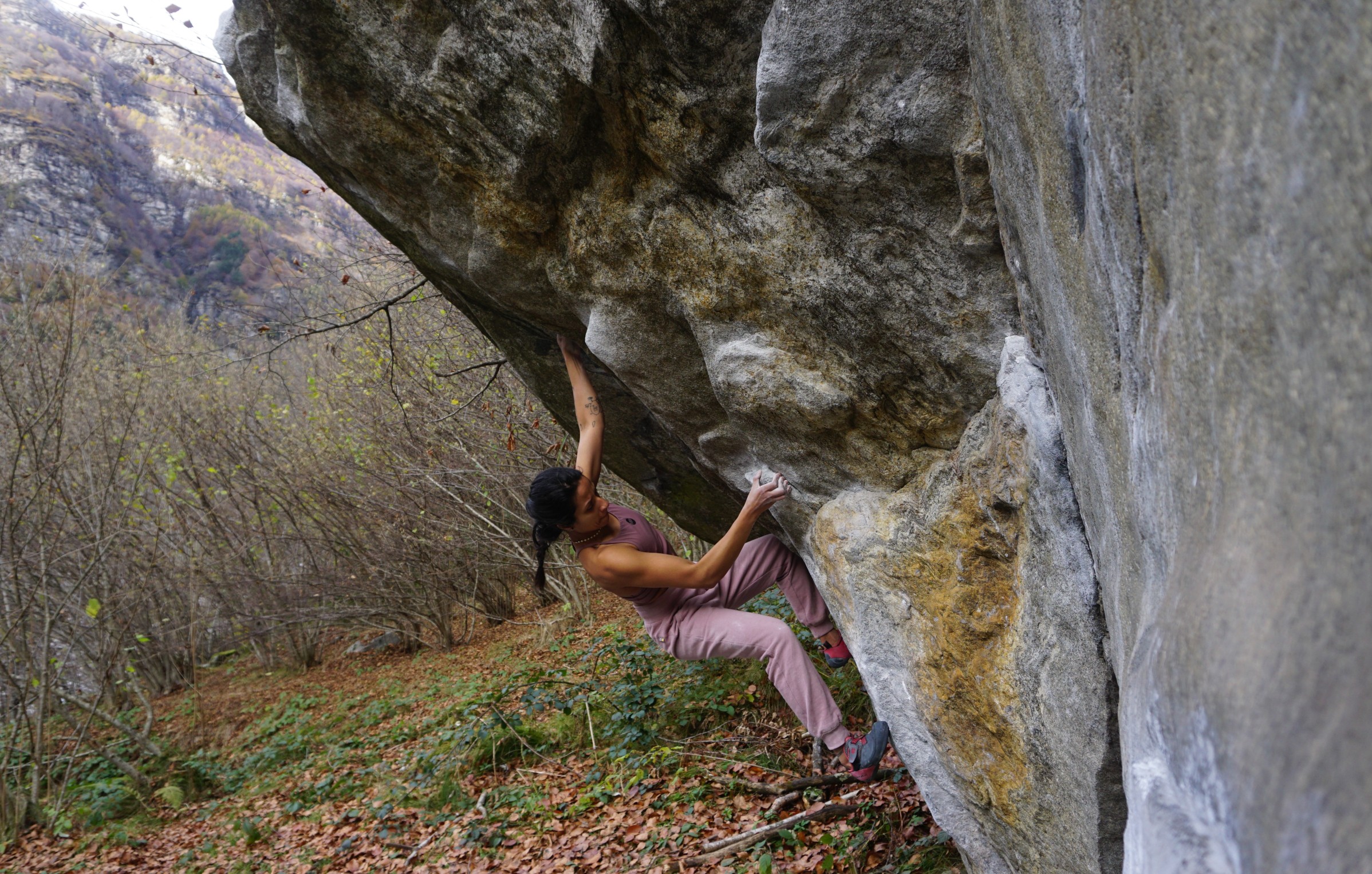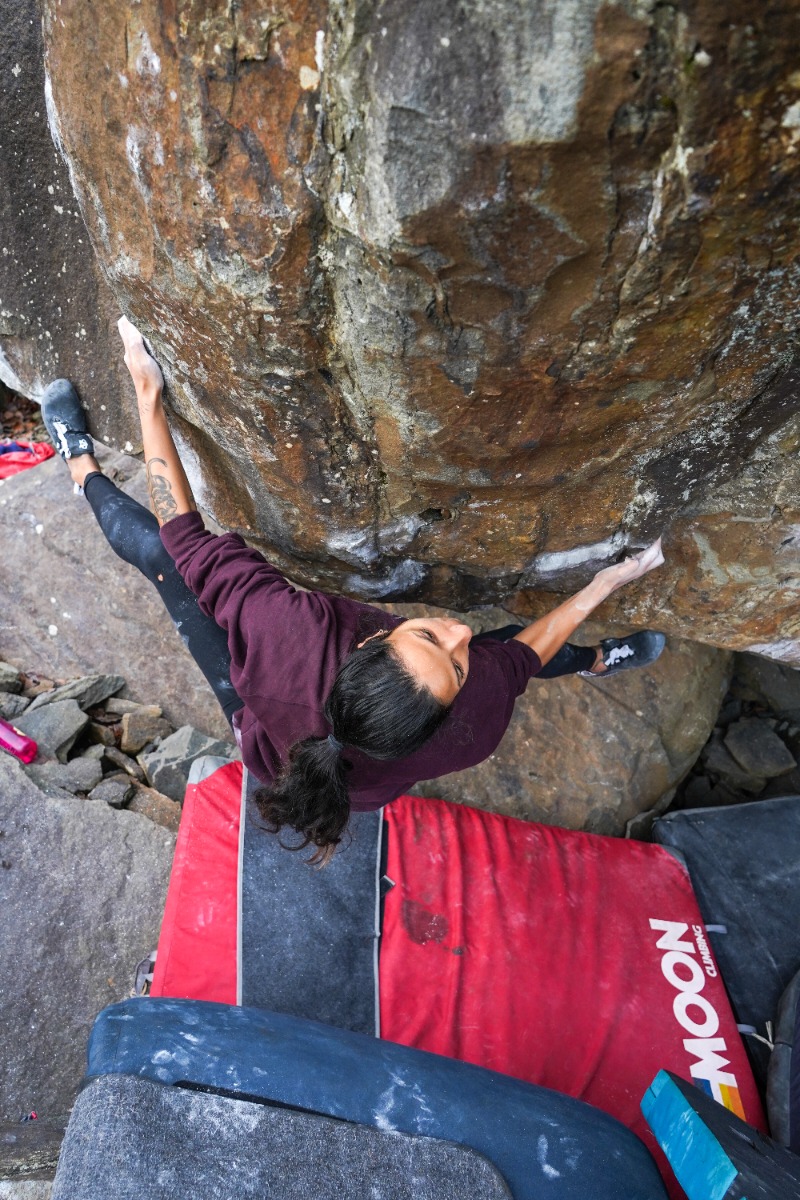
Ways To Improve Your Climbing Part 1 - Ayesha Khan
Climbing is a sport that keeps on giving. It is not uncommon to find climbers pursuing peak performance and sending their hardest well into their 30s and even 40s. But beyond physiological limitations, the opportunities to improve your strategy, mindset, focus, and tactical approach are infinite. I would argue this aspect of climbing is far more important than your physicality, but compared to the amount of fingerboard or strength training protocols available at the click of a button, it can be harder to find guidance on how to improve in these less quantifiable areas. I’ve spent many years being frustrated about performance, and refusing to recognise the lessons in climbing that were plain to see, but that I had been too stubborn to acknowledge. Hopefully in writing this I can help you waste a little less time…
Goals, Motivation, and Try Hard
Goal setting means something a little bit different to all of us. It can be difficult to identify exactly what lights your fire, but when you do, you’ll find yourself unlocking that next level of try hard you didn’t know you had. That’s the ultimate goal. Knowing how to focus your mind and produce your maximal output on any given day, whether it be on your project or in a training session, is the key to improving and ultimately, success.
It's common to find ourselves lulled into the trap of grade oriented goals. While these goals aren’t necessarily invalid, I’ve never found myself making leaps and bounds in progress purely motivated by the prospect of ticking a certain grade. I have however made enormous amounts of progress when motivated by climbing a specific problem that inspired me, that also held a grade I’ve never climbed before. The issue with grade oriented goals is not that being psyched to climb a new grade is bad, but that grades can often be wildly inaccurate descriptors of the difficulty of that climb. I’ve climbed 7c boulders that were more like 7b, and I’ve climbed 6c boulders that felt more like 7b.
What drives me is the prospect of topping blocs out that straddle that line of possibility. Sessions spent on single moves, fighting poor conditions, injuries, then finally making progress, only to regress again… All of this culminating in a send that was never guaranteed is what drives me to fight as hard as I can on every last rep of every set in every session. For me, this can present itself in anything from a 7b boulder to 8a. So, finding a line that makes you lay awake at night practising the moves in your head will always be a greater driver for success than an arbitrary number.
Weaknesses Are Opportunities
Some of us may be familiar with the feeling of sticking to a certain training protocol or climbing style because we’re good at it. It feeds our ego and mimics the appearance of progress and success, drawing our attention away from the areas with more potential for growth that we’d prefer to not acknowledge. We develop a negative connotation with these weaknesses and hope they’ll magically disappear.
If we can flip the script on how we view our weaknesses and truly embrace a growth mindset towards these areas, it opens up huge potential for gains. Not just in the specific area you’re weak in, but in the areas you already excel at as well. These weaknesses that we view as failures are not failures at all, but valuable opportunities which we need to capitalise on if we are to truly explore the top end of our performance.

Credit - Tom Stockton
Success Breeds Success
Success in a climbing season often comes in floods and droughts. Once we’ve sent one project, the surge in psych and confidence removes hesitation and provides the laser focus we need in order to put down the next project, and the next one. On the contrary, we can be painfully close to many sends, but find ourselves watching the season come to a close empty handed, our UKC log a barren reminder of sends that eluded us. The latter scenario though does not mean that we have not been successful. Just because you didn’t clip the chains does not mean you didn’t make enormous jumps in strength, power and endurance. You may have dialled in a sequence you previously struggled to pull individual moves on. You may have got more days on rock than weather or work had permitted in previous years. Arguably the most important lesson I’ve learned in my years of climbing is that no matter how good or bad a competition or outdoor session has gone, there will be things we have done well, and there will be lessons to learn. Finding reasons to believe in yourself relentlessly will always drive you towards the coveted send more than self deprecation will. Rather than allowing these seasons to slow your momentum, challenge yourself to be confident and optimistic, and find tangible ways in which you’ve been successful.
Read more in Part 2

